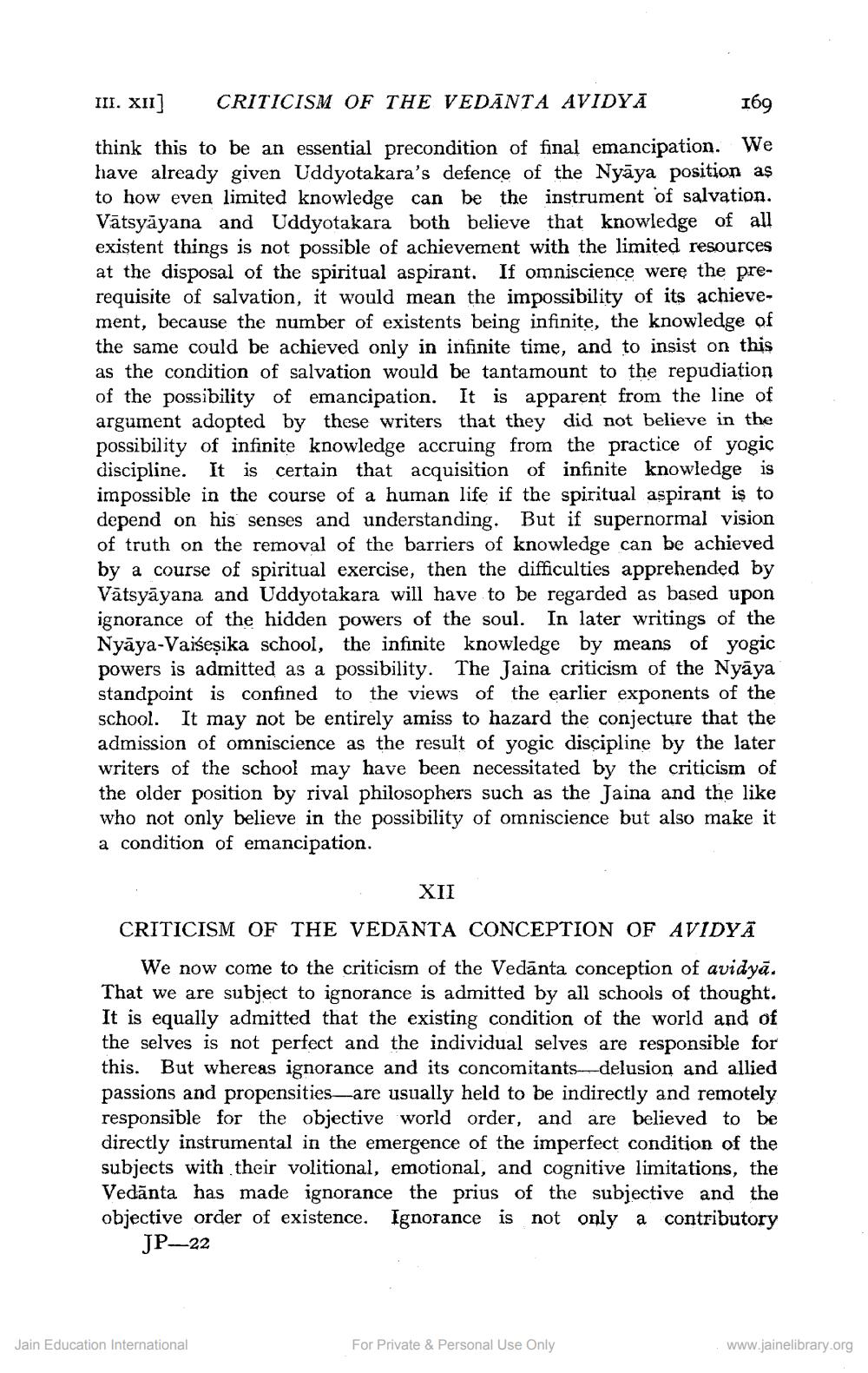________________
III. XII]
CRITICISM OF THE VEDANTA AVIDYA
169
think this to be an essential precondition of final emancipation. We have already given Uddyotakara's defence of the Nyaya position as to how even limited knowledge can be the instrument of salvation. Vatsyāyana and Uddyotakara both believe that knowledge of all existent things is not possible of achievement with the limited resources at the disposal of the spiritual aspirant. If omniscience were the prerequisite of salvation, it would mean the impossibility of its achievement, because the number of existents being infinite, the knowledge of the same could be achieved only in infinite time, and to insist on this as the condition of salvation would be tantamount to the repudiation of the possibility of emancipation. It is apparent from the line of argument adopted by these writers that they did not believe in the possibility of infinite knowledge accruing from the practice of yogic discipline. It is certain that acquisition of infinite knowledge is impossible in the course of a human life if the spiritual aspirant is to depend on his senses and understanding. But if supernormal vision of truth on the removal of the barriers of knowledge can be achieved by a course of spiritual exercise, then the difficulties apprehended by Vatsyāyana and Uddyotakara will have to be regarded as based upon ignorance of the hidden powers of the soul. In later writings of the Nyaya-Vaiseṣika school, the infinite knowledge by means of yogic powers is admitted as a possibility. The Jaina criticism of the Nyaya standpoint is confined to the views of the earlier exponents of the school. It may not be entirely amiss to hazard the conjecture that the admission of omniscience as the result of yogic discipline by the later writers of the school may have been necessitated by the criticism of the older position by rival philosophers such as the Jaina and the like who not only believe in the possibility of omniscience but also make it a condition of emancipation.
XII
CRITICISM OF THE VEDANTA CONCEPTION OF AVIDYA
We now come to the criticism of the Vedanta conception of avidyā. That we are subject to ignorance is admitted by all schools of thought. It is equally admitted that the existing condition of the world and of the selves is not perfect and the individual selves are responsible for this. But whereas ignorance and its concomitants-delusion and allied passions and propensities are usually held to be indirectly and remotely responsible for the objective world order, and are believed to be directly instrumental in the emergence of the imperfect condition of the subjects with their volitional, emotional, and cognitive limitations, the Vedanta has made ignorance the prius of the subjective and the objective order of existence. Ignorance is not only a contributory JP-22
Jain Education International
For Private & Personal Use Only
www.jainelibrary.org




